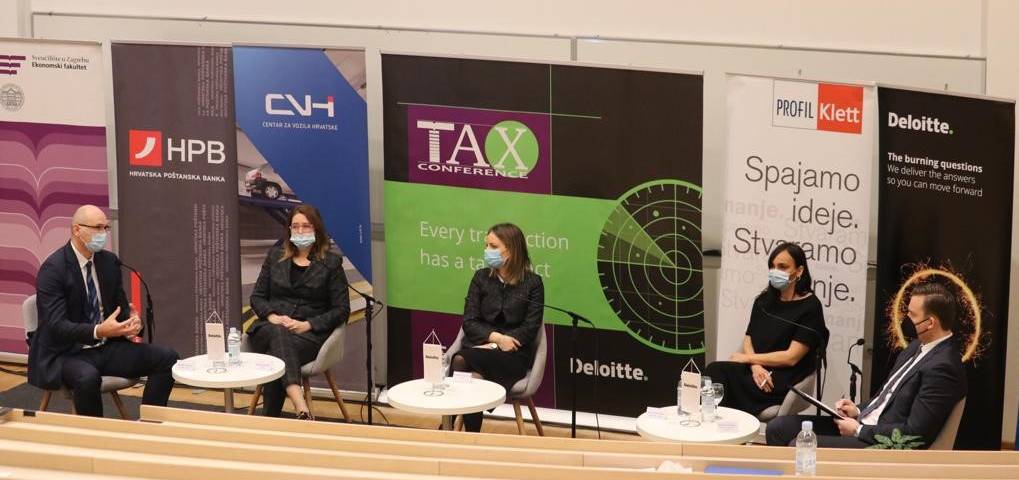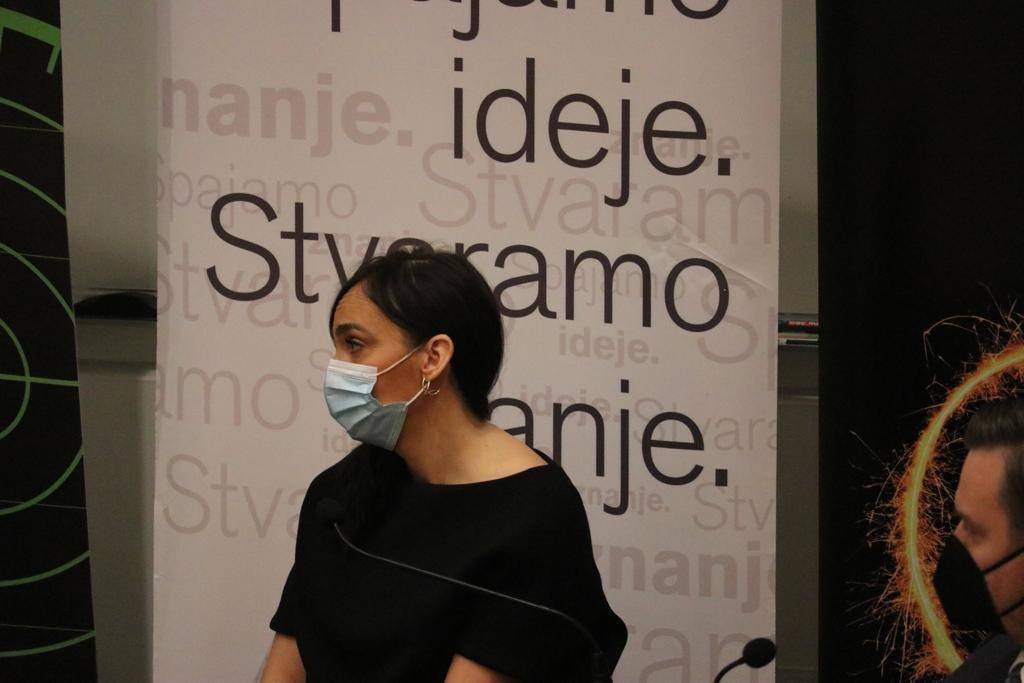Zagreb Holding at the Tax Policy Conference in the Post-Pandemic Period

January 30, 2021 - The 4th Tax Conference was held at the Faculty of Economics in Zagreb on Friday, January 29, bringing together the professional and business public on the topic: Tax Policy in the Post-Pandemic Period. The aim of the conference was to encourage the exchange of ideas and opinions and provide practical recommendations for improving the tax system of the Republic of Croatia through dialogue between the main participants and representatives of taxpayers and the state.
In addition to the lecture on Tax Policy Challenges in Croatia, given by Zdravko Marić, Deputy Prime Minister and Minister of Finance, two panel discussions were held on current tax topics.
The rules should be the same for everyone - both private and public companies
As part of the panel: New Generation Tax Policy, Ana Stojić Deban, President of the Management Board of Zagreb Holding, spoke about the impact of tax policy on public companies. Among other things, she pointed out that tax reform, in addition to tax relief, should lead to the simplification of tax policy and should certainly be fairer.
Zagreb Holding, as a provider of public services, annually pays about one billion kuna in taxes and other public benefits, which are paid into the budget. VAT is paid according to the issued invoices immediately. However, part of the bill is charged many years later, because the customers of Zagreb Holding's services are mostly citizens. As she explained, about a million payment slips are delivered on a monthly basis. These are mostly smaller invoices and all mechanisms and risk of billing fall on Zagreb Holding, which she considers as unfair and thinks that it should be worked on incorporating the basic principles of fairness and neutrality into tax legislation, and on collection and correction of VAT on unpaid invoices.
She also mentioned that tax policy is the same for private and public companies, except when it comes to subsidies and COVID Government measures to affected companies.
- When giving and taxing, the burdens and rules are the same. We give a lot, but with subsidies, when the inability to perform some activities was doubtful, unfortunately, we could not use these measures, and COVID hit us just as hard as the whole economy and the whole system.

Ana Stojić Deban, President of the Management Board of Zagreb Holding
Due to the law of large numbers, the City of Zagreb should participate in changes to the taxation system
Speaking about the impact of changes in tax policy on local self-government units, she pointed out that the City of Zagreb should definitely participate in planning changes to the taxation system, because the effects are great because the numbers are big. For example, if the tax rules from 2014 were in force, the budget of the City of Zagreb would be today 5 billion kuna higher. In addition, any change in regulation that affects the budgets of local governments, is reflected in public companies. Zagreb Holding, for example, generates about 30 percent of its revenues from the City of Zagreb's budget, based on the services provided.
In the conclusion at the end of the panel, she said: I personally support the direction in which tax reform is going, but tax regulations should not be so complex. It needs to be simplified and certainly needs to be fairer. From the position of public companies, it should be worked on incorporating protective mechanisms into the legislation, so that we equally suffer the burden of collection for receivables, where we actually pay taxes in advance into the budget. Also, any change in regulations that affect the budgets of local governments, is reflected in the planning of their budgets, the implementation of capital projects. Therefore, compensatory measures should be found in advance that will compensate for the income lost through relieving some other taxpayers. There are a number of other things where we, as a public company, are somehow deprived, but we are big enough to be able to compensate for those shortcomings.
The panel discussion, along with the President of the Management Board of Zagreb Holding, was attended by Božidar Kutleša, Director of the Tax Administration, Helena Schmidt, partner in Deloitte's Tax Consulting Department and Marijana Starčević, Tax Manager at Orbico, while the moderator was Assist. Prof. Marko Primorac, Ph.D from the Faculty of Economics.

The conference, which was held under the auspices of the Ministry of Finance of the Republic of Croatia, was jointly organized by the Faculty of Economics in Zagreb and Deloitte, and was held in a hybrid format with a limited number of participants in the audience with a video stream on YouTube. Zagreb Holding is traditionally one of the conference partners.
More on all topics on the Tax Conference website.
More on all topics on the Tax Conference website.